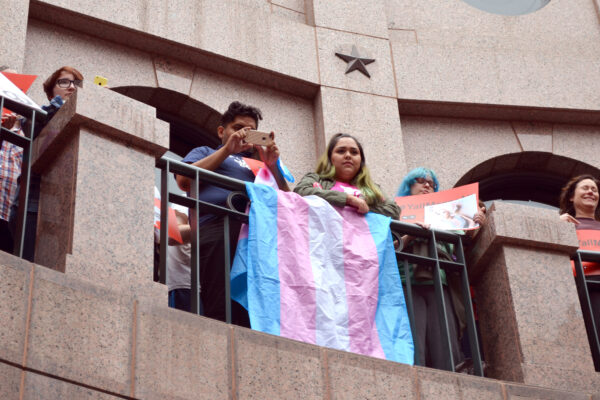LGBTQ issues experienced significant progress at the Texas Capitol this session. Spearheaded by the formation of the first-ever LGBTQ Caucus, advocates of LGBTQ rights successfully defeated almost every anti-LGBTQ effort that came through the socially conservative Texas Senate.
One of the bigger victories during the session was the defeat of a series of bills that would have dramatically broadened the ability to discriminate against others using the guise of religion. Senate Bill 17 aimed to make it easier for professionals licensed by the state to discriminate against any person, including those within the LGBTQ community, if that discriminatory act was made because of the licensed professional’s “sincerely held religious belief.”
Indeed, SB 17 was one of the Lieutenant Governor’s 30 top priorities for the legislative session and represented a serious threat to Texas’ LGBTQ community. Fortunately, thanks to the voices of thousands of Texans that took action with the ACLU of Texas and our ally organizations, the bill never made it out of the Texas House even after passing the Senate.
Another major victory for the LGBTQ community was the defeat of several bills that would have allowed the state to override municipalities that already have existing nondiscrimination ordinances. These ordinances act as protections against discrimination that often occurs against LGBTQ individuals in the workplace including hiring practices and pay equity. The legislation took a rollercoaster journey, starting as Senate Bill 15 before being broken up into four smaller bills. Ultimately, the House refused to pass any of the Senate’s legislation that would have ended these local laws.
The bill that did pass, unfortunately, was Senate Bill 1978, known to many as the “Save Chick-fil-a” bill. The bill received its moniker due to City of San Antonio officials declining to allow a Chick-fil-a restaurant to operate in the city’s airport because of the company’s discriminatory history.
The truth is, the cookie-cutter law was adopted from legislative language that had already made its way through other states’ legislatures. The bill was rebranded and — despite a number of efforts by the LGBTQ Caucus and statewide partners to defeat it — it ultimately passed and was signed by Governor Abbott.
Despite the setback, there was an historic committee hearing that marked true progress in the Texas Legislature. State Rep. Celia Israel, a member of the LGBTQ Caucus, secured the first-ever hearing on legislation that would have banned gay conversion therapy.
In an emotional and moving hearing, community members testified about their experiences going through often times cruel conversion therapy sessions. While the legislation had little chance of passing, many considered the hearing itself a “symbolic win” because of the opportunity it gave some LGBTQ community members to elevate an issue that disproportionately affects them.
This legislature offered a window of opportunity for proactive advocacy and allyship in the fight to defend LGBTQ rights in Texas. As Texas continues to recognize that love is love and that all people deserve to be treated equally, there is now legitimate hope that pro-LGBTQ legislation will one day advance and pass the Texas Legislature.



